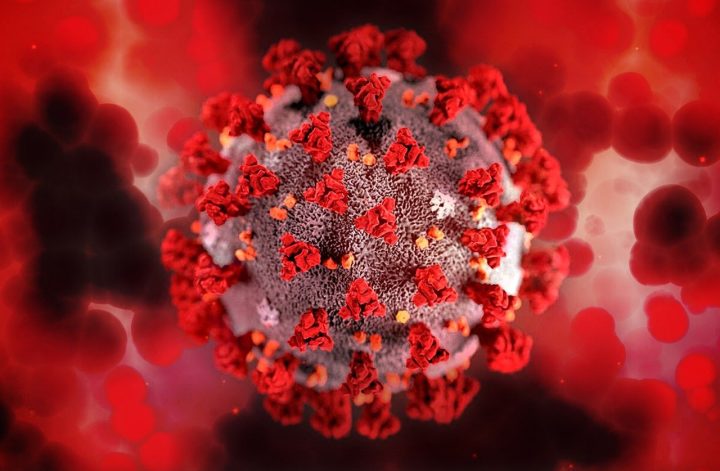What is meant by “Environmental Sustainability”?
Environmental Sustainability basically includes all of the aspects of human lifestyle and activities that have an impact on the environment. It can be both positive or negative however, as we have experienced, and are continuing to see the effects of anthropogenic activities- most of the activities have a negative impact.
Environmental Sustainability means living a lifestyle or incorporating such activities and industrial policies that keep environmental protection in mind. It also includes person to person use of everyday goods and products as well as being mindful of one’s carbon footprint to reduce the number of green house gas emissions as much as possible.
How did COVID-19 Impact Environmental Sustainability?
The outbreak of the Corona Virus in 2019 started a chain reaction of events that ultimately culminated in months long industrial shut downs, quarantines, travel restrictions and basically put a halt to almost all human activities due to its severity. In many countries it lasted until 2022, with precautions still being taken.
Check out, COVID-19 Crisis Impacting Environmental Sustainability
Positive Impacts of COVID-19 on Environmental Sustainability
Some positive effects of COVID-19 on Environmental Sustainability are:
- Reduction in private and public transport: The greatly reduced transport and its resulting green house gas emissions saw a sharp decline in just 6 months after nation wide quarantine was implemented across all countries. This was beneficial for the environment and provided clear skies for days instead of smog, smoke and pollution filled air. This meant spending less fuel and reduction in the use of fossil fuels.
- Improved Air Quality: With none or minimal private and public transport on roads, as well as restrictions on air travel and people only going out for a purpose or necessity, a great improvement in the quality of air was observed across the globe but especially in pollution concentrated cities and regions like Lahore, Delhi, New York etc.
- Industrial Production Halt: Industries run on fossil fuel to generate electricity or any other production/ manufacturing of products which meant when workers were asked to quarantine and all industrial processes were temporarily halted. A great load was diminished from the atmosphere as coal, oil, diesel were being used at a rate fraction to what it was being used normally. This resulted in cleaner skies, air and even quality and quantity of water. the U.S. benchmark price for oil dropped below zero for the first time in oil-market history.
- Water Conservation: Water being a crucial resource is use din all sectors and aspects of life, although it is not exactly easy to determine whether water is actually conserved. Since many reports and surveys indicate that, in a misinformed notion people resorted to cleaning their houses twice or thrice a day during quarantine. However, at the industrial and commercial scale water usage was none or minimal due to the lockdown which temporarily conserved water.
- Less Burden on Tourist Destinations: the lockdown offered a small reprieve to the environment of most popular tourist destinations even as their economy suffered. This time allowed the natural ecosystems to have some time to restore themselves from any tourist damage caused. However, there was a significant amount of damage and waste disposal that was previously unacknowledged that was brought to attention in the aftermath of the pandemic. New sustainable policies and environmental friendly were developed as a result to prevent the natural ecosystems and resources from being exploited or overburdened in many places.
Negative Impacts of COVID-19 on Environmental Sustainability:
Due to the COVID-19 and the devastation it wrecked on the general population, there are further negative impacts of it on the environment as well:
- Products Shortage: Increased consumerism prior to the announcement of the quarantine and lockdown led people to mass buy products and other necessities which not only caused panic and hysteria among the public but also lead to a product shortage which was bad particularly because of the strain it caused on the environment as the packaging and waste generation from one house increased almost four times than before that. This was further effected by the fact that industries were also going into a steady or partial lockdown due to new work policies. This proved to be a beginning to a very unsustainable use of products that would be seen through most of the pandemic/ lockdown duration.
- Increase in the Single-use Masks: the single use masks and the requirement to replace it daily lead to more waste generation, improper dumping and increased littering on roads and outside homes. Before cloth/fabric masks became trendy useless as they were, these single use masks and N-95 masks were used and disposed easily without care which increased land pollution during this time period. For more, please check out: Environmental Impacts Of Disposable Covid-19 Face Masks
- Increased Land pollution: Increased use of masks, food waste and product packaging generation, medical hazmat suits and the disposable gear that was crucial for the time led to an all time high medical waste dumping and disposal problems which were significant during this time period.
- Excess Chemical Load in Waterways: due to the increased use of hand sanitizers and chemical based handwashes, anti-bacterial soaps etc., there was an excessive amount of chemicals present in the drains and sewage systems which utimately lead to possible underground contamination and water pollution.
Read more: Harmful Effects of Excessive Use of Hand Sanitisers – Covid-19
Conclusion:
Sustainability in its essence allows our needs to be met as well as provide ample resources for future needs of the people as well. This benefits the environmental resources and ecosystems as it creates a balance between consumption and usage.
Also check out: Weather Impacts Number of COVID-19 Cases In Pakistan – Research
and Covid-19 and Climate Change – Exposing Environmental Injustice
I hope you all liked this post! Please comment below if you have any suggestions, comments, or feedback! We at #envpk love hearing from our readers! Thanks!




